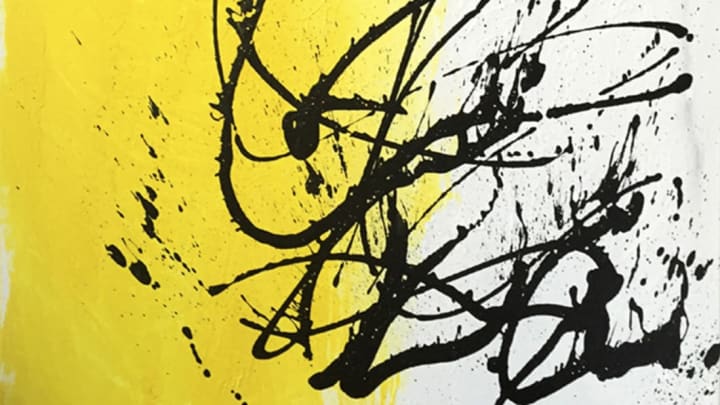Some might argue that a Jackson Pollock painting looks like something a preschool kid could do, given a canvas and some paint. But abstract art is definitely distinct from the random splatters of a child, a new study finds. In research published in the Journal of Cognition and Development, children as young as age 4 were able to distinguish between the paintings of abstract expressionists and paintings by other kids and animals with similar compositions.
The study, conducted by a team of Boston College psychologists, involved about 130 kids between the ages of 4 and 12 years old. They were asked to evaluate 18 paintings by abstract expressionist artists paired with 18 similar paintings done by preschoolers or zoo animals (chimps, apes, monkeys, and gorillas, in this case). Some pairs were unlabeled, and some pairs were labeled with one painting marked “artist” and the other marked "monkey," "child," or "elephant." Some kids saw unlabeled paintings, some saw paintings that were correctly labeled, and others saw paintings that were incorrectly labeled (for example, a painting by a monkey labeled as being by a human artist).
The researchers found that even the youngest kids were able to successfully discern the work of a professional artist and a painting by a kid or a chimp in the unlabeled experiment. However, they didn’t necessarily think that made the art more appealing. When looking at unlabeled paintings, the 4- to 7-year-old kids preferred the work of other kids or animals, judging them as more appealing than the artists’ paintings.
Both age groups were more likely to choose the artists’ paintings when asked to judge quality than if they were asked to pick the painting they personally preferred. But when the paintings were correctly labeled, the 8- to 12-year-olds tended to say they preferred the work of the artists. This suggests that not only does professional abstract art have qualities that sets it apart from superficially similar work, but that even young children see a difference between what they prefer and what is considered high quality.
[h/t BPS Research Digest]
